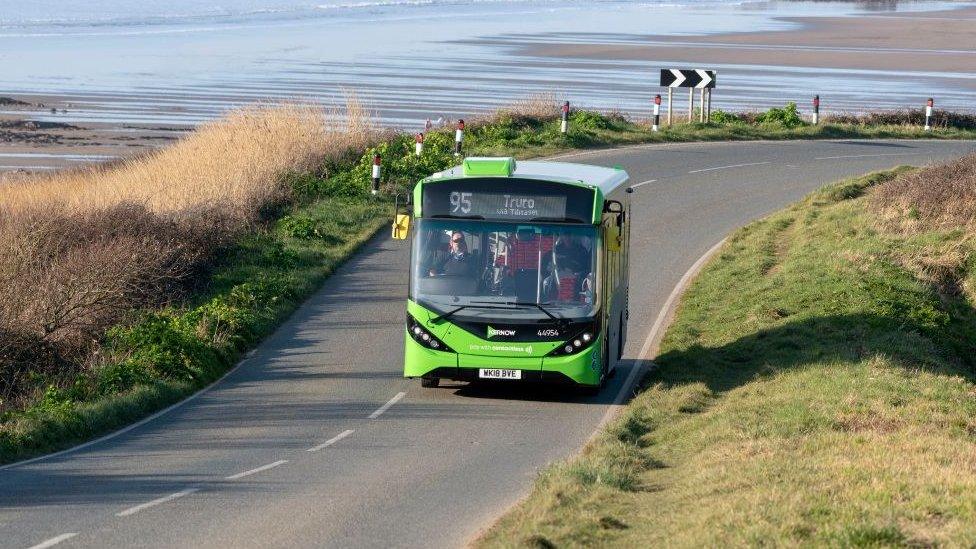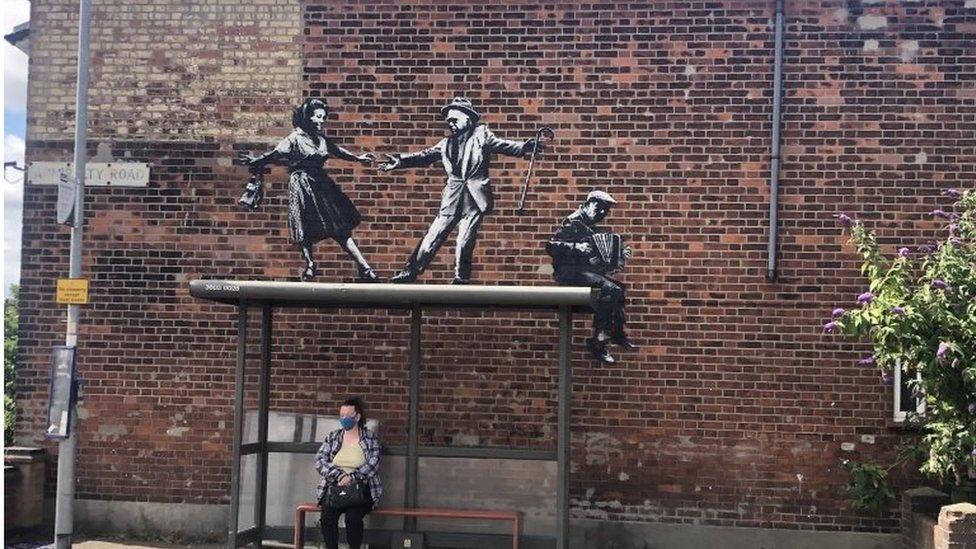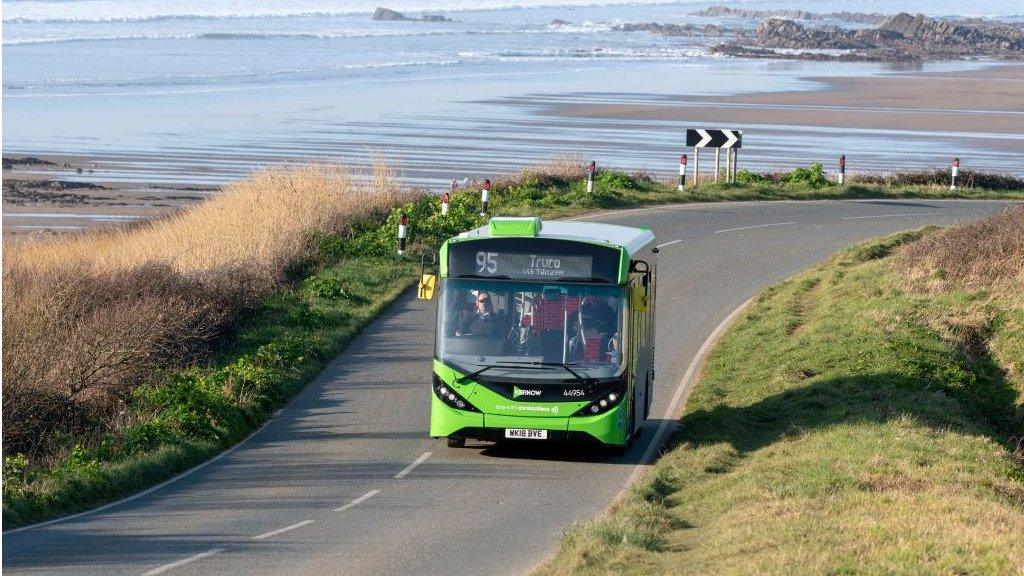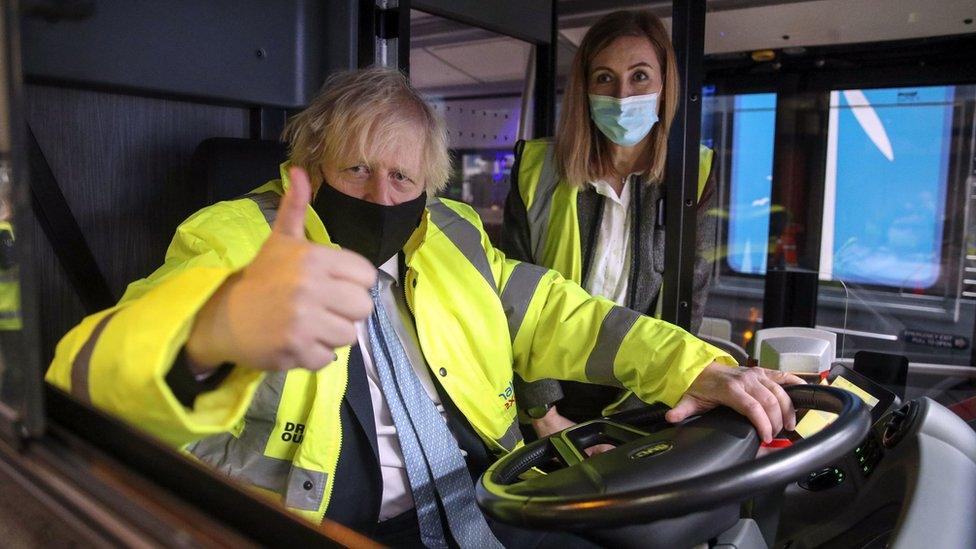Thirty-one areas given cash to boost bus services
- Published

Thirty-one areas in England including Liverpool, Norfolk and Cornwall have been picked to receive government funding to boost bus services.
However, other places such as Blackpool and Slough will miss out on the £1.08bn pot of money allocated by government.
The transport department said it gave money to areas which had the "ambition to repeat the success achieved in London - which drove up bus usage".
But, Labour said "vast swathes" of the country would miss out on funding.
And the Campaign for Better Transport said the money awarded fell "woefully short" of what local authorities needed.
The £1.08bn allocated to the 31 local authorities is part of a £1.2bn pot of money for that purpose, not all of which has been allocated yet.
Last year, the government announced its £3bn bus strategy which it said would make buses across the country cheaper and easier to use.
It promised services that would be so frequent, passengers will be able to "turn up and go".
As part of the strategy, local areas were asked to produce plans for improving bus services - and government funding would be awarded based on the "level of ambition demonstrated".
Of the areas awarded funding on Monday, the North East and North of Tyne received the largest amount, getting £163.5m.
Other successful areas include West of England and North Somerset (£105.5m), Greater Manchester (£94.8m), the West Midlands (£87.9m), Hertfordshire (£29.7m), Luton (£19.1m) and Central Bedfordshire (£3.7m).

A bus stop in Great Yarmouth, Norfolk - one of the areas which will get money to improve bus services
In addition to receiving £11.3m for its improvement plans, Cornwall also gets £23.5m for a pilot scheme which will see bus fares reduced, with longer journeys costing up to 40% less.
Announcing the funding,, external Transport Secretary Grant Shapps said: "Buses are the most popular way of getting around in this country - but for too long people outside of London have had a raw deal."
He said the investment would "drive down fares at a time when people's finances are tight and help connect communities across England".
However, Labour's shadow transport secretary, Louise Haigh, said: "The Tories have admitted vast swathes of the country won't see a single penny to improve their shockingly bad bus services.
"The Conservatives have slashed the funding promised, and dramatically downgraded the ambitions of many local communities."
The bus and coach industry trade body, the Confederation of Passenger Transport, said the announcement was "an important milestone" but cautioned that "millions of passengers would be left disappointed" because their local area had missed out.
Paul Tuohy, chief executive of Campaign for Better Transport, said "Improving buses in a minority of places does not live up to the promise of a national bus strategy, though locally it will be very welcome."
The group said only 40% of those authorities which submitted plans would benefit from a slice of the funding.
Passenger numbers
Councillor Cecilia Motley from Shropshire Council - which missed out on funding - said the council believed it had submitted a strong bid.
"We will, of course, be working with our MPs to seek clarification from the government as to why our bid has been ignored and what we could have done differently," she said.
The government has also confirmed £150m will be available to help bus services recover from the low passenger numbers seen during the pandemic.
A spokesman said that, of the £3bn promised for the bus strategy, just over £2.4bn had already been set out.
He said this included £525m to increase the number of zero-emission buses, £600m as part of the City Region Sustainable Transport Settlements, and a further pot of £100m for local improvements, including the pilot in Cornwall.
Related topics
- Published15 March 2021

- Published15 March 2021
